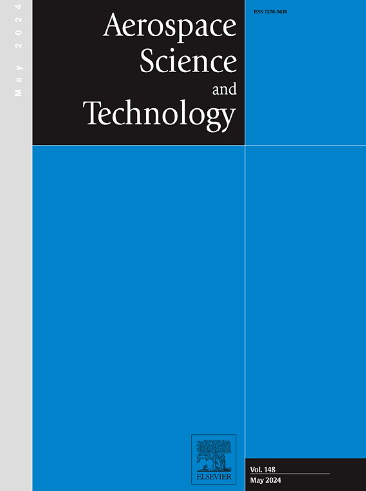Differential-algebraic equation-based model predictive control for trajectory tracking of spacecraft-mounted continuum manipulators
IF 5
1区 工程技术
Q1 ENGINEERING, AEROSPACE
引用次数: 0
Abstract
Spacecraft-mounted continuum manipulators (SMCMs) exhibit great potential for performing dexterous operations in unstructured environments due to their inherent compliance and dexterity. However, the dynamic model of the rigid-flexible coupling SMCM is highly nonlinear and typically formulated as a set of implicit differential-algebraic equations (DAEs), posing significant challenges for precise trajectory tracking control. This paper proposes a novel model predictive control (MPC) framework specifically designed for generic DAEs to achieve precise trajectory tracking of the SMCM under uncertain disturbances and input limitations. The DAE model of the SMCM is discretized into a set of nonlinear algebraic equations. By performing implicit differentiation of these equations with respect to the system state, the state transition matrix (STM) for the DAE model is derived. The optimal control action for the SMCM can be further determined based on the derived STM. Additionally, nonlinear complementary functions are introduced to address the issue of input limitations, allowing the problem of determining the optimal control sequence to be equivalently transformed into a set of nonlinear algebraic equations for solving. Numerical simulations demonstrate that the proposed approach can achieve precise trajectory tracking of the SMCM while strictly adhering to input limitations.
基于微分代数方程的模型预测控制,用于航天器安装的连续机械手的轨迹跟踪
由于其固有的顺应性和灵巧性,航天器安装的连续机械手(SMCM)在非结构化环境中执行灵巧操作方面展现出巨大的潜力。然而,刚柔耦合 SMCM 的动态模型高度非线性,通常表述为一组隐式微分代数方程 (DAE),给精确轨迹跟踪控制带来了巨大挑战。本文提出了一种专为通用 DAE 设计的新型模型预测控制 (MPC) 框架,以在不确定干扰和输入限制条件下实现 SMCM 的精确轨迹跟踪。SMCM 的 DAE 模型被离散化为一组非线性代数方程。通过对这些方程进行与系统状态相关的隐式微分,得出了 DAE 模型的状态转换矩阵 (STM)。根据推导出的 STM,可以进一步确定 SMCM 的最优控制动作。此外,还引入了非线性互补函数来解决输入限制问题,从而将确定最优控制序列的问题等效地转化为一组非线性代数方程来求解。数值模拟证明,所提出的方法可以实现 SMCM 的精确轨迹跟踪,同时严格遵守输入限制。
本文章由计算机程序翻译,如有差异,请以英文原文为准。
求助全文
约1分钟内获得全文
求助全文
来源期刊

Aerospace Science and Technology
工程技术-工程:宇航
CiteScore
10.30
自引率
28.60%
发文量
654
审稿时长
54 days
期刊介绍:
Aerospace Science and Technology publishes articles of outstanding scientific quality. Each article is reviewed by two referees. The journal welcomes papers from a wide range of countries. This journal publishes original papers, review articles and short communications related to all fields of aerospace research, fundamental and applied, potential applications of which are clearly related to:
• The design and the manufacture of aircraft, helicopters, missiles, launchers and satellites
• The control of their environment
• The study of various systems they are involved in, as supports or as targets.
Authors are invited to submit papers on new advances in the following topics to aerospace applications:
• Fluid dynamics
• Energetics and propulsion
• Materials and structures
• Flight mechanics
• Navigation, guidance and control
• Acoustics
• Optics
• Electromagnetism and radar
• Signal and image processing
• Information processing
• Data fusion
• Decision aid
• Human behaviour
• Robotics and intelligent systems
• Complex system engineering.
Etc.
 求助内容:
求助内容: 应助结果提醒方式:
应助结果提醒方式:


